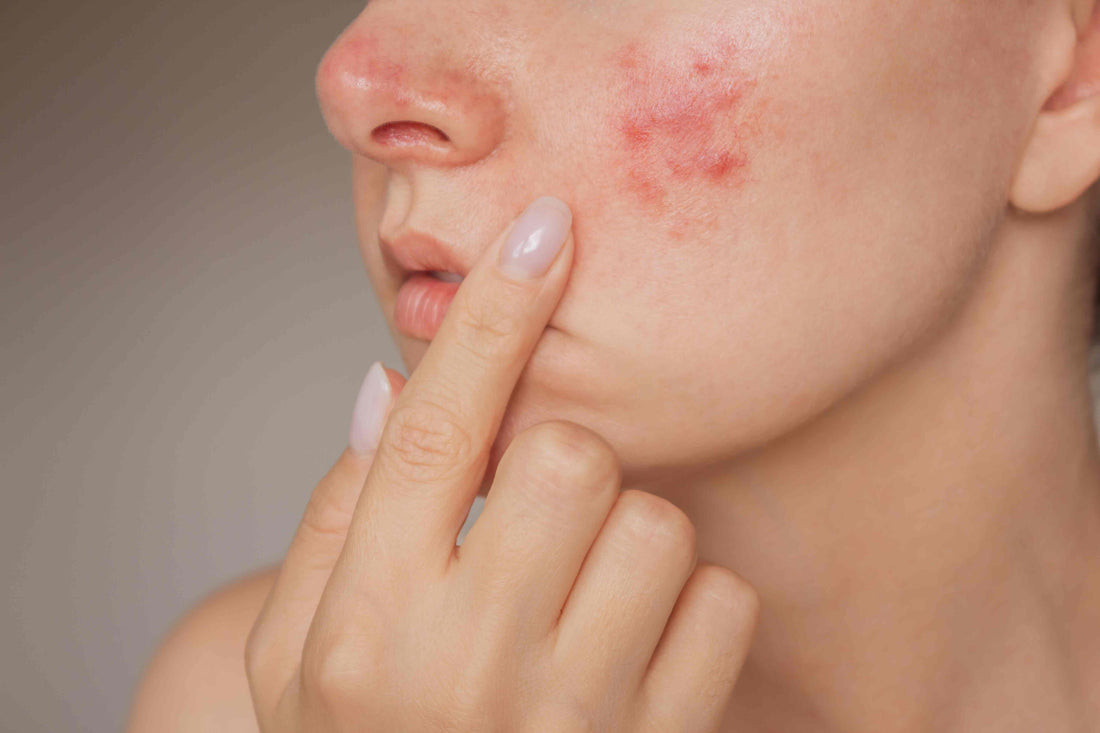
A Derm recommends: Acne-alleviating ingredients
When it comes to skincare advice, dermatologists are a great place to start – and these are some acne-busting ingredient recommendations you can trust...
Salicylic acid
‘Salicylic acid is a beta hydroxy acid (BHA) that helps exfoliate dead skin cells and unclog pores,’ explains Professor Nicola Ralph, a dermatologist at the Institute of Dermatologists, Ireland. ‘It also has anti-inflammatory properties that can help reduce redness and irritation in the skin.’
Salicylic acid is a go-to over-the-counter acne ingredient, as it exfoliates and helps to dissolve the dead skin cells and sebum that cause spots to form. Despite being included in lots of over-the-counter products, you do need to take care with use. Salicylic acid is a powerful active ingredient that should be introduced to your skin gently and slowly. We suggest looking for the ingredient in a cleanser format and using it as a second cleanse every third evening to boost clarity and ease congestion.
Benzoyl peroxide
‘Benzoyl peroxide is an antibacterial agent that can help kill the bacteria that cause acne. It also has anti-inflammatory properties that can help reduce redness and swelling in the skin. But beware - it stains clothing, towels, sheets etc.’
Retinoids
‘Retinoids are derivatives of vitamin A that can help regulate skin cell turnover and reduce the formation of new acne lesions,’ continues Nicola. ‘They can be found in over-the-counter formulations in a variety of strengths.’ Vitamin A essentially normalises the skin and can reduce sebum production. It can also help at the other end of the spot life cycle too, helping to eradicate the pigmentation or dark marks that are often left behind once a spot heals. ‘It is important to remember to introduce them to your skincare routine slowly every 2-3nights and to use moisturiser afterward to prevent redness/irritation of the skin.’
Niacinamide
Nicola also recommends niacinamide, also known as vitamin B3, ‘for its anti-inflammatory effect on the skin which also helps to reduce redness and staining from previous acne spots.’
Azelaic acid
‘Azelaic acid has both antibacterial and anti-inflammatory properties. It can help reduce the formation of new acne lesions and improve skin texture and tone and is also safe for use during pregnancy.’
We also recommend...
Hyaluronic Acid
Thinking that oily or acne-prone skin doesn’t need hydration is a common skin misconception that we’re keen to debunk. Hyaluronic acid is a humectant which means it draws moisture from the atmosphere into the skin for top-notch hydration. It’s also a key component in wound healing which is crucial for making spots heal faster.
SPF
SPF isn’t technically an ingredient, but it is integral as it protects general skin health and can help to prevent any acne-related pigmented scarring from worsening.
‘It is important to note that these ingredients may cause skin irritation in some individuals, and it is always best to patch test new products and start with a lower concentration to minimize the risk of irritation,’ advises Nicola. ‘It is also important to maintain a consistent skincare routine and avoid using harsh scrubs or picking at acne lesions, as this can exacerbate the condition and possibly lead to scarring of the skin. If over-the-counter treatments are not effective, it may be necessary to consult with your doctor or be referred to a dermatologist for further evaluation and treatment.’
Tip: Don’t exacerbate the issue by using too many products or ingredients intended for the same purpose. Deep cleansing or scrubbing might seem like the natural solution to excess oiliness and bumpy patches, but too much of either will strip the skin.
